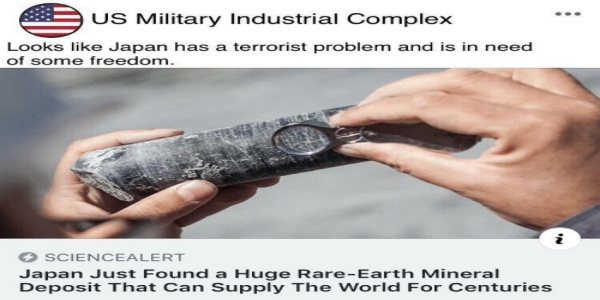Shortage of metals worsens climate change
But only if we use them in the wrong amounts.

The world won’t be able to tackle the climate crisis unless there is a sharp increase in the supply of metals like copper, lithium, nickel, cobalt and rare earths.
Thhose substances are essential to produce electric cars, solar panels, wind turbines and other clean energy technologies.
The average electric car requires six times more minerals than a conventional car, according to the International Energy Agency (IEA). Lithium, nickel, cobalt, manganese and graphite are crucial to batteries.
Power grids and plants need huge amounts of copper and aluminum, while rare earth elements are used in the magnets needed to make wind turbines work.
It will be wonderful to have all those things, but there a couple of problems to solve before. First, all those metals are getting harder to get, at least with acceptable environmental and social standards. Second,only three countries (Democratic Republic of Congo, China and Australia) control more than 75% of the global output of some of them (lithium, cobalt and rare earths): considering what the same situation with oil did to the world, it’s easy to see that all those metals will also create problems, in the next decades.
Metals expectations, meet reality
IEA recently summarized this situation with a first-class euphemism: “there is a looming mismatch between the world’s strengthened climate ambitions and the availability of critical minerals that are essential to realizing those ambitions”.

Of course, this is a problem only for “Lifestyle as Usual”
The looming mismatch is a problem only for whoever still expects, to make just two examples, that single-household homes and private cars should remain mass “products.
Lower general expectations on that (which does not mean at all lowering quality of life!) and the mismatch suddenly becomes much easier to manage. This “lowering”, or solutions like rationing continue to look every year more the least bad way to go. I wonder if this isn’t exactly what the IEA executive director himself was thinking when he diplomatically said: “The challenges are not insurmountable, but governments must give clear signals about how they plan to turn their climate pledges into action."
Image sources: Me.me
Who writes this, why, and how to help
I am Marco Fioretti, tech writer and aspiring polymath doing human-digital research and popularization.
I do it because YOUR civil rights and the quality of YOUR life depend every year more on how software is used AROUND you.
To this end, I have already shared more than a million words on this blog, without any paywall or user tracking, and am sharing the next million through a newsletter, also without any paywall.
The more direct support I get, the more I can continue to inform for free parents, teachers, decision makers, and everybody else who should know more stuff like this. You can support me with paid subscriptions to my newsletter, donations via PayPal (mfioretti@nexaima.net) or LiberaPay, or in any of the other ways listed here.THANKS for your support!